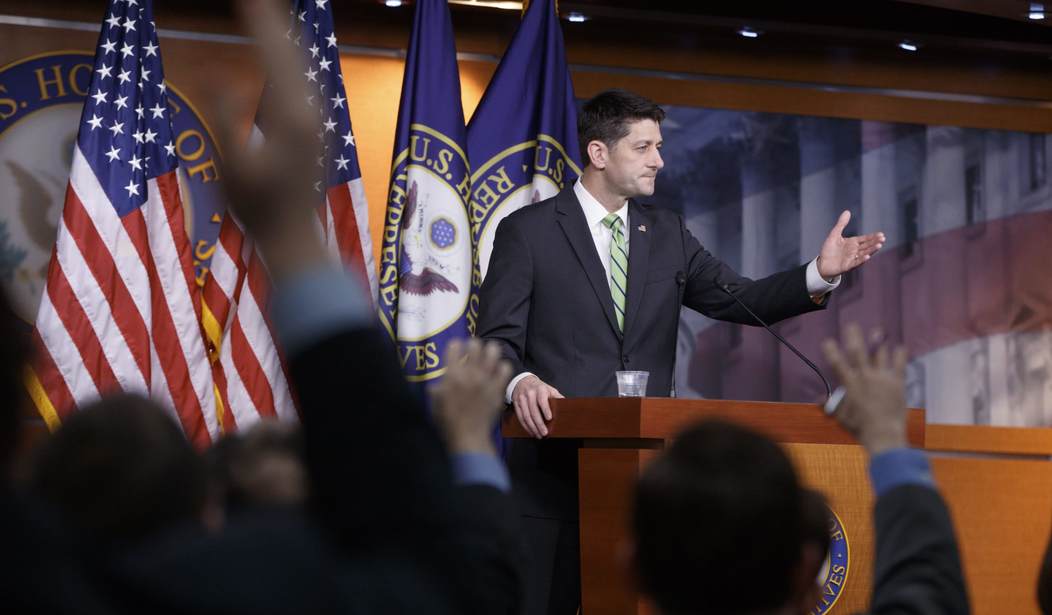WASHINGTON — House Speaker Paul Ryan (R-Wis.) says he’s behind President Trump’s vow at the National Prayer Breakfast today to “destroy” the rule that keeps tax-exempt organizations, including religious institutions, from participating in political campaigns.
Trump told the breakfast that because of “the right to worship according to our own beliefs,” he “will get rid of and totally destroy the Johnson Amendment and allow our representatives of faith to speak freely and without fear of retribution.”
The amendment was passed in 1954, putting in the Internal Revenue Code the rule that “all section 501(c)(3) organizations are absolutely prohibited from directly or indirectly participating in, or intervening in, any political campaign on behalf of (or in opposition to) any candidate for elective public office.”
“Contributions to political campaign funds or public statements of position (verbal or written) made on behalf of the organization in favor of or in opposition to any candidate for public office clearly violate the prohibition against political campaign activity,” continues the IRS website. “Violating this prohibition may result in denial or revocation of tax-exempt status and the imposition of certain excise taxes.”
Nonpartisan voter education activities or registration drives are exempt from the rule.
White House press secretary Sean Spicer told reporters at the daily briefing that “in the coming days, we’ll develop a system to help ensure that those admitted into our country fully embrace our values of religious and personal liberty and reject any form of oppression or discrimination.”
He then added Trump’s commitment to scrap the Johnson Amendment, “allowing our representatives in faith to speak freely and without retribution.”
Trump told the Christian Broadcasting Network shortly after taking office that killing the Johnson Amendment was a priority for him because it’s “a disaster for religion.”
The president said he was going to “try very hard to get it done during my term… for evangelicals, for Christians, for everybody of faith.”
Ryan said he’s “long believed” that the Johnson Amendment should go.
“I’ve always supported that,” he said.
Randall Balmer, chairman of the religion department at Dartmouth College, argued today in the Los Angeles Times that since taxpayers subsidize tax-exempt organizations, those institutions shouldn’t be politicking on the taxpayers’ dime.
“It also ensures that tax-exempt organizations do not serve as the conduit for tax-exempt contributions to political candidates,” Balmer wrote. “…Pastors, churches or any other entity can make political endorsements from the pulpit or in any other forum. They need only to renounce their tax exemptions — their public subsidies — and they are free to be as partisan as they wish.”
On Wednesday, Sen. James Lankford (R-Okla.) introduced the Free Speech Fairness Act that would amend the Johnson Amendment to allow political speech while maintaining the prohibition against 501(c)(3) organizations contributing money to candidates or campaigns.
“The First Amendment right of free speech and right to practice any faith, or no faith, are foundational American values that must extend to everyone, whether they are a pastor, social worker or any charity employee or volunteer,” Lankford said. “People who work for a nonprofit still have constitutional rights to assembly, free speech, and free press.”
American Atheists said Trump “promised to blow up the wall of separation between church and state.”
“Not on our watch,” the group tweeted.









Join the conversation as a VIP Member